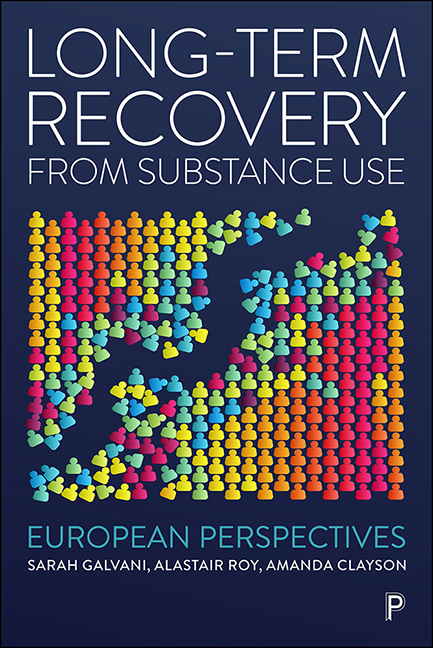8 - Being a partner in long-term recovery: stories from female partners in Norway
Published online by Cambridge University Press: 15 September 2022
Summary
Introduction
This chapter documents experiences of being a partner in a long-term recovery process. The research about long-term recovery from substance use gives the impression that recovery processes are about single people. However, this is illusory, and reflects the focus of most research into substance-use difficulties. In this chapter, we look at romantic relationships in long-term recovery from a Norwegian perspective. This is a perspective involving the context of the Scandinavian welfare state, well-established public services and countries with high levels of gender equality. The aim of this chapter is to exemplify, from interviews, how women talk about their lives as partners to men in long-term recovery. By doing so, the chapter provides insight into some of the complex experiences of being a partner in a long-term recovery process, and how these women's experiences are related to their social and cultural context.
Close relationships with partners, family and friends are the factors that most affect human health and well-being (Dunbar, 2018), and this also applies in the case of long-term recovery from substance use. The role of people's close relationships is not only important in relation to their motivation for treatment or in the short term but also in their day-to-day lives and ongoing recovery: ‘Being connected to others gave meaning to the hardships of working towards recovery. For many of them, this was a life-long process in which the continual presence of family and friends was key’ (Veseth et al, 2019, p 100).
There is a growing research interest in the role and importance of families in the recovery of individuals with substance-use difficulties (Timpson et al, 2016; Ventura and Bagley, 2017). The main body of this research is about periods of treatment or recovery in the short term (Edwards et al, 2018; Dekkers et al, 2020). Family-focussed research has mostly focussed on filling in the knowledge gap about the disruptive effect of ongoing substance use on family members (Ray et al, 2007; Rodriguez et al, 2014), or on reporting on the effects of family involvement in substance-use treatment (Fletcher, 2013; Meis et al, 2013). We know less about how family members experience long-term recovery, how it affects family relations or how family members may influence the long-term recovery process (Andersson et al, 2018).
- Type
- Chapter
- Information
- Long-Term Recovery from Substance UseEuropean Perspectives, pp. 93 - 107Publisher: Bristol University PressPrint publication year: 2022



